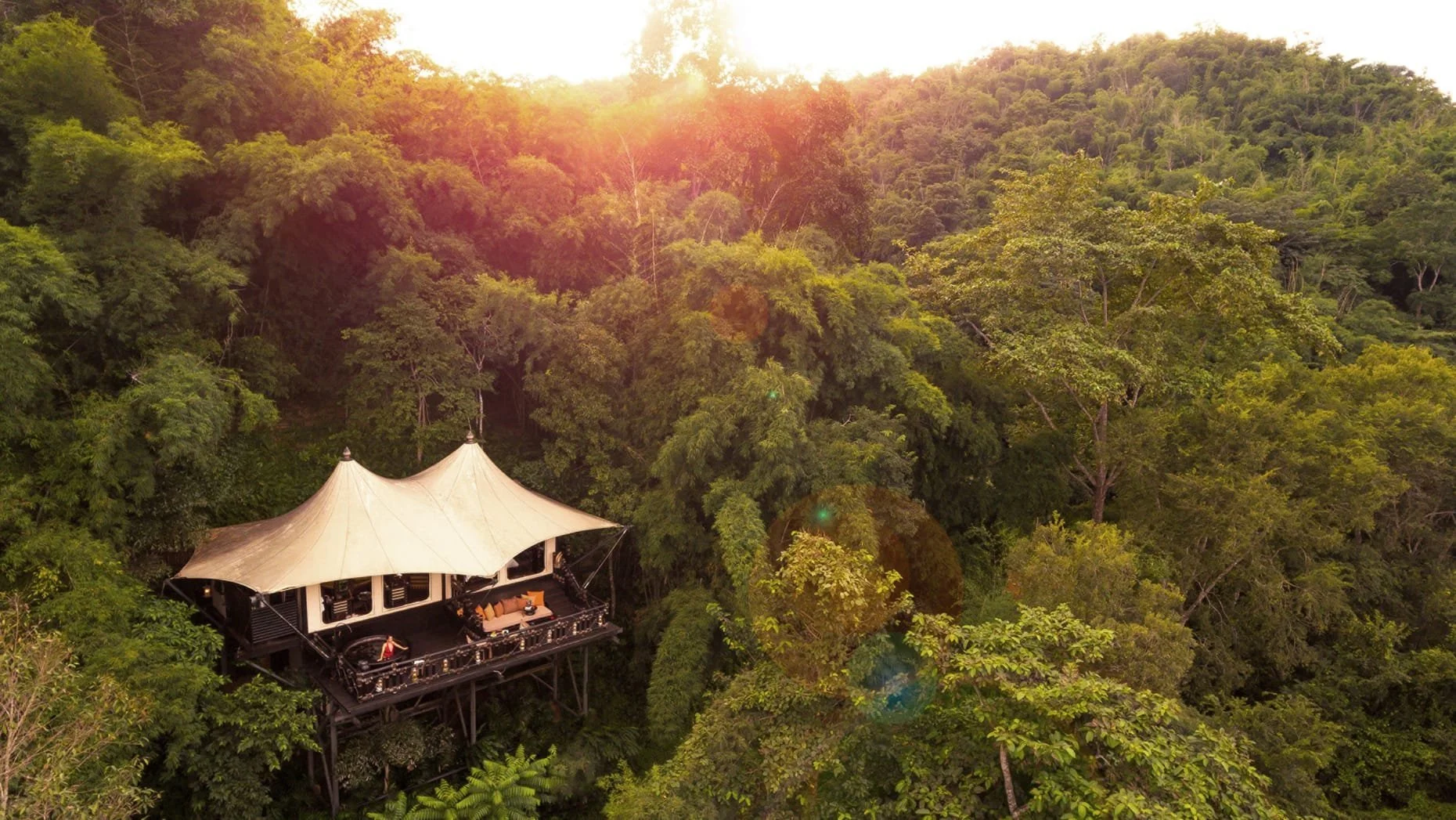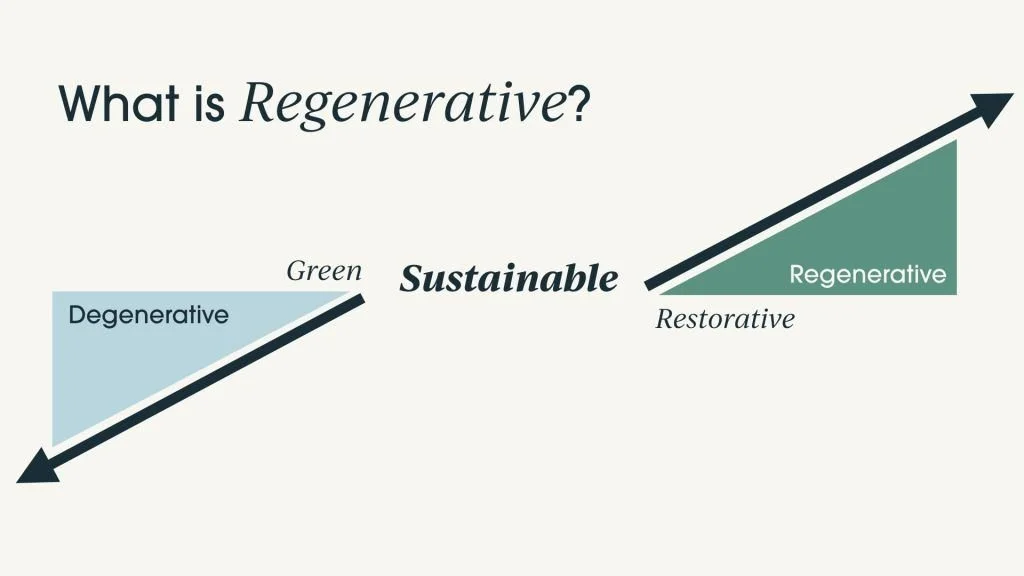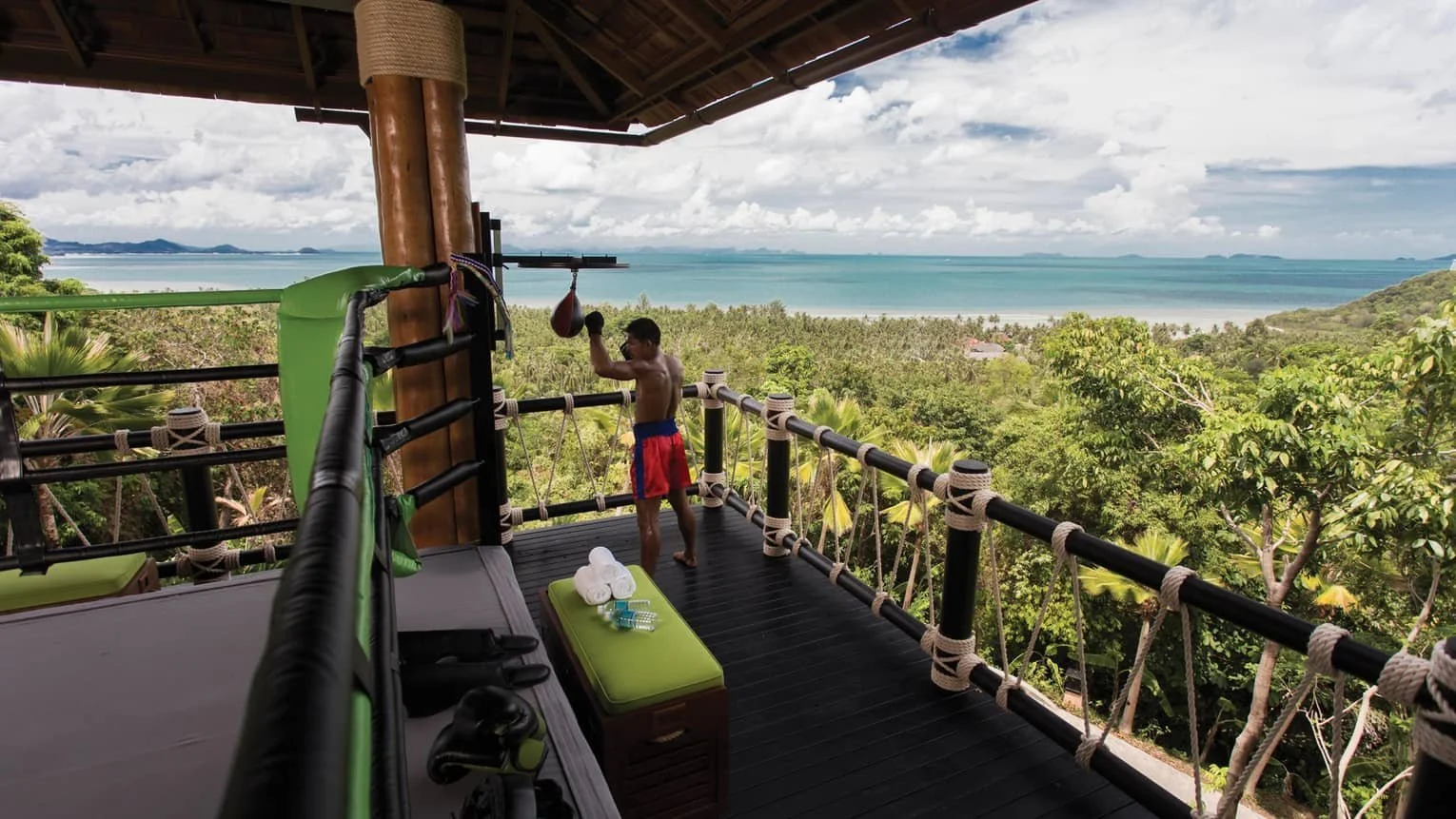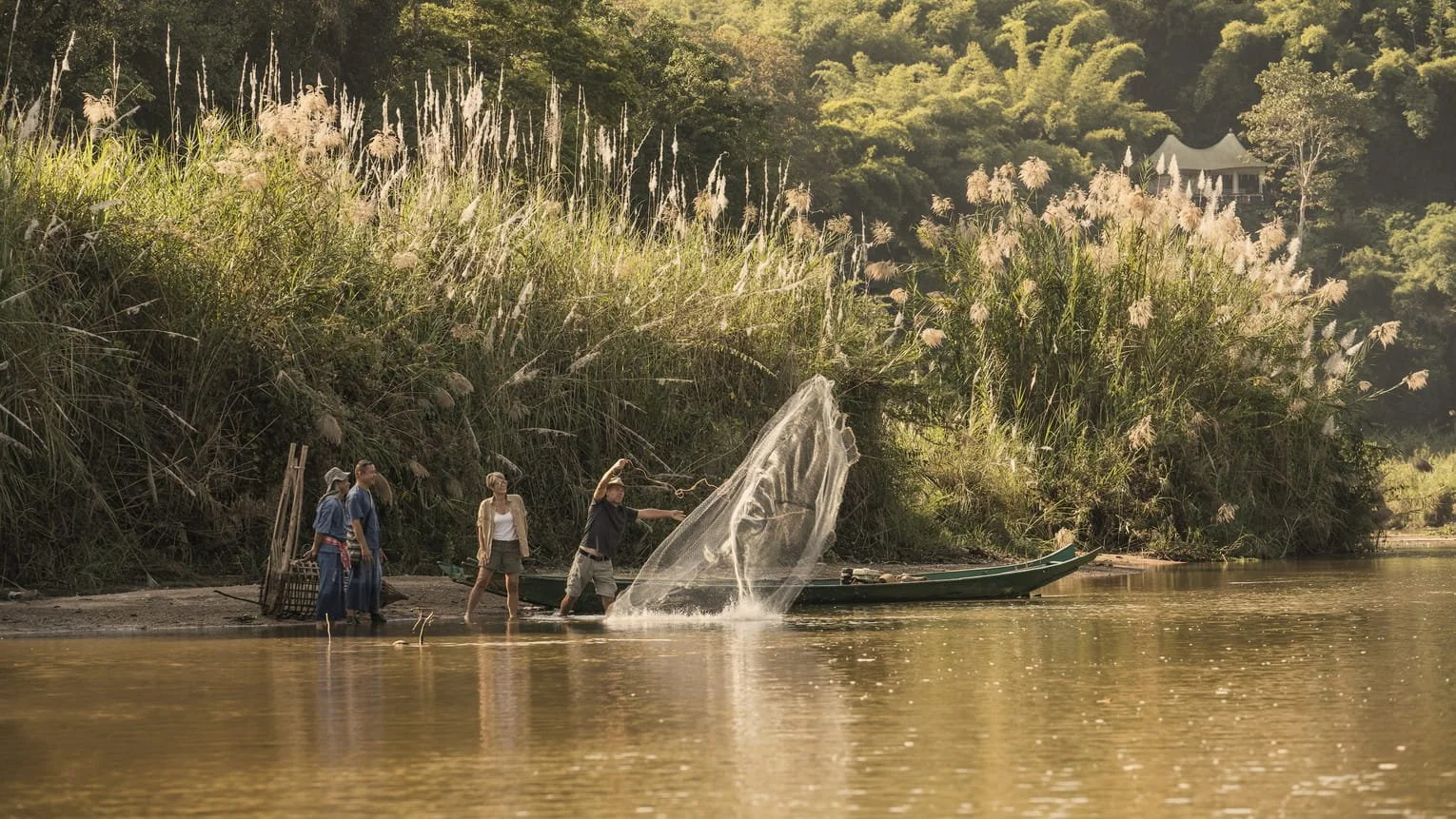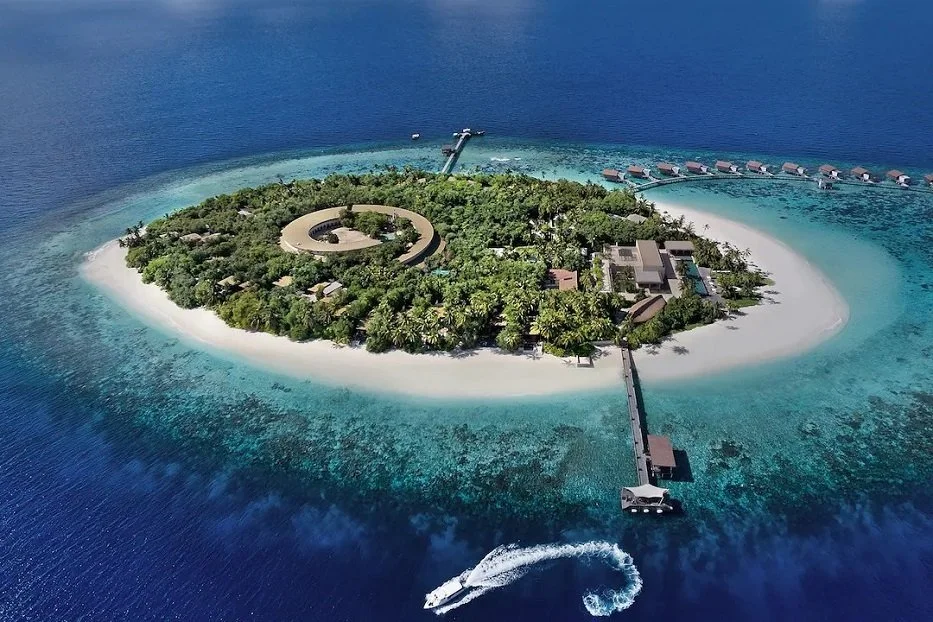How Four Seasons and Park Hyatt Offer Sustainability-Led Guest Experiences?
Photo by: Four Seasons Tented Camp Golden Triangle
Why It Matters
A rapidly growing group of discerning Asian travelers make conscious selections of hotels and experiences that actively contribute towards the well-being of the local environment and communities.
Preferences for sustainable travel experiences by regions according to a 2022 Expedia Sustainable Travel Study:
Asia - 95%
The Americas - 74%
Europe - 69%
We have seen two emerging practices – started with sustainable travel and then followed by regenerative travel in the industry.
Sustainable travel aims to neutralize the negative environmental impact of traveling by taking steps to reduce air pollution, recycle and repurpose waste, use renewable energy sources and preserve natural habitats.
Regenerative travel takes the idea of sustainable tourism a step further - it seeks to actively regenerate the local environment and communities through eco-minded practices. Regenerative tourism focuses on biodiversity conservation and social justice while also encouraging meaningful cultural interactions between travelers and locals.
Source: Regenerative Travel
We spoke with three properties of Four Seasons Resorts in Thailand and Park Hyatt Maldives Hadahaa to learn more about their sustainability efforts and how these initiatives help create a more positive guest experience.
Disclaimer: Asia Sustainable Travel Briefing does not endorse any of these properties as sustainable or regenerative. Our aim here is to demonstrate the guest experience initiatives that these hospitality brands are implementing as part of their sustainability journey.
Four Seasons Resorts In Thailand Don’t Just Pay Lip Service To Sustainability.
Four Seasons Resort Koh Samui offers educational and personal improvement tours to guests of all ages.
Educational activities taking place at natural, cultural, historical and heritage sites such as Angthong Marine National Park, elephant sanctuaries and ancient temples provide guests with an opportunity to learn more about the local area, communities and environmental initiatives.
The resort also offers guests who are looking for personal development the option to participate in the traditional Thai martial art, Muay Thai, at the resort's open-air, professional-grade boxing ring.
The resort also showcases local artisans and artists who specialize in creating carved soap flowers and nang talung (Thai shadow puppet art). The proceeds of these exhibitions go back to support local communities and the arts.
Photo by: Four Seasons Resort Koh Samui
Four Seasons Resort Chiang Mai promotes sustainability through its food offerings by serving seasonal dishes made with local ingredients, including fresh herbs from the on-site kitchen garden and locally sourced cocoa beans for its signature chocolate-based confectionery.
The resort also offers unique travel experiences such as participating in a rice planting experience and pottery workshops, as well as visiting hill tribe villages and temples.
Photo by: Four Seasons Resort Chiang Mai
Four Seasons Tented Camp Golden Triangle has implemented eco-friendly initiatives such as providing bicycles for guest use and sourcing loose-leaf teas and coffee from local farms to reduce packaging waste.
The resort also offers educational tours for guests to explore the local community, providing an opportunity to learn more about the destination and its people.
The sustainability activities of these three Four Seasons properties provide guests with an intimate connection to the destinations and their people.
These experiences also enable guests to learn about how responsible travel can help preserve resources for future generations while exploring the local environment and culture safely and enjoyably.
Photo by: Four Seasons Tented Camp Golden Triangle
Park Hyatt Maldives Hadahaa Takes A Leadership Role In Promoting Sustainability And Conservation Initiatives Among Key Travel Players Of The Island Country.
Before arrival, guests are requested not to bring any plastic items with them on their trip, which is reinforced with recommendations detailing what should be packed.
While out on an excursion, the resort provides guests with bento boxes and glass drinking bottles.
Particularly for fishing trips, guests can have a unique opportunity to practice traditional Maldivian bait fishing techniques, which is a great way to immerse into the local way of life and learn how responsible fishing can keep local marine resources for the next generations.
Fish that do not meet approved fishing protocols or that are protected species are released back into the ocean. Guests are only allowed to keep one catch per villa, with the rest being released back into the ocean.
The resort also offers a farm-to-table dining concept, providing guests with a unique and sustainable dining experience that is not only delicious but also informative. While dining at the resort, guests receive information on how their food consumption choices can have an impact on the environment.
Photo by: Park Hyatt Maldives Hadahaa
The bottom line:
Sustainable travel is a powerful way to conserve the environment with the revenue from visitors and guests. At the same time, it can also make a guest’s experience not only luxurious but also meaningful.
Bringing sustainability commitments to life with robust actions builds trust with travelers, allowing them to make conscious choices more easily.
How To Get Started? Tips From Four Seasons Resorts Thailand
Embrace the environment and the communities where you operate. What are the strengths of the locale and its people, and what do they need as a start?
Communicate the value system that your hotel brand and its people stand for. What kind of impact would you like your business to make that will resonate through generations?
As these initial questions are asked, great ideas start taking form.
Interested in receiving more stories like above? Subscribe to Asia Sustainable Travel Briefing and be among the first to receive agenda-setting analysis and advice in your inbox.


